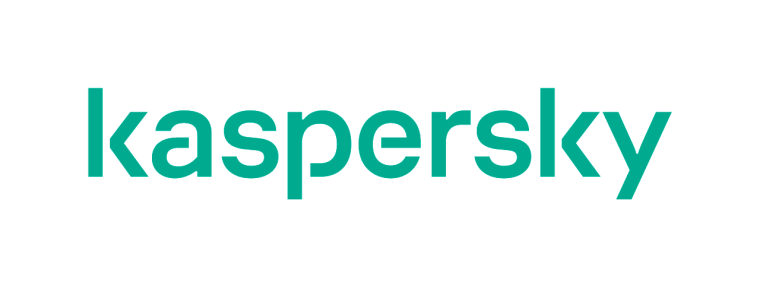Editors’ Note, July 3, 2024: PCMag rates and evaluates products based on their merits and effectiveness, not on political considerations. However, the US government has banned all sales of Kaspersky products in the US. Those using the products can continue, but after September 29, 2024, they won’t have access to necessary antivirus updates. Because of this, we can’t recommend purchasing Kaspersky’s products. We have removed our rating since this product will be unavailable, but you can read our most recent review below.
Every macOS antivirus utility must handle the essential tasks of scanning for existing malware and preventing any future malware attacks. Some stop there, while others offer a little more security, or a lot more. Kaspersky Internet Security for Mac belongs to the latter group. It gives you secure online banking with the Safe Money tool, privacy protection components, VPN protection, and a parental control system. It’s a security suite that goes for the same price as many simple Mac antivirus tools.
A big image of a MacBook dominates the product's main window. If the pictured monitor is green, with a check mark, everything is fine. The monitor turns red if something's wrong, and it also shows an explanation and a button you can click to fix the problem. Four icons occupy a strip across the bottom: Scan, Update, Privacy, and Safe Kids. Despite having more features than most competitors, this product maintains an uncluttered main window.
A big blue button opens the Protection Center, which has three pages. On the Protection page, you can confirm that important features are enabled. The Recommendations page offers advice to get the most from your antivirus. For example, it advised installing the browser extensions, connecting to My Kaspersky online, and installing the VPN and password manager. Finally, the News page offers product information, such as what's new in the current edition.
Similar Products

How Much Does Kaspersky Internet Security for Mac Cost?
A one-Mac license for this product costs $39.99 per year, while extending protection to three Macs raises that to $59.99. Kaspersky's Windows antivirus product also costs $59.99 per year for three licenses. Bitdefender and ESET precisely match those one- and three-license plans, while Webroot charges $49.99 for three licenses.
You can also get away with paying nothing at all—Sophos Home Free (for Mac) and Avira don't cost a thing. As for Trend Micro, it, too, costs $39.95 per year for a single license. However, to get a three-license plan for PCs and Macs you must upgrade to the full security suite, for $79.95 per year.
You pay more for Intego, which lists at $99.99 per year for three licenses, but you get more security features, too. At $99.99 per year for five licenses, Norton 360 Deluxe (for Mac) also looks pricey. However, on a per-device basis it's about the same as Kaspersky, and it also offers a full suite of features. As you can see, there is quite a range of pricing for Mac antivirus software.

 It's Surprisingly Easy to Be More Secure Online
It's Surprisingly Easy to Be More Secure Online
Some Mac antivirus utilities extend support back to antiquated versions of vgb. ESET, for example, runs on anything from Mavericks (10.9) on, while ClamXAV (for Mac) and ProtectWorks go back to Snow Leopard (10.6). Others, among them Bitdefender and Norton, only support the very latest few iterations of the Mac operating system. Kaspersky, too, wants a modern macOS, at least Mojave (10.14).
Excellent Malware Protection Test Results
When evaluating a Windows-based antivirus program, I study the reports from four independent testing labs around the world, and supplement what I learn with hands-on testing. Kaspersky's Windows antivirus earned perfect and near-perfect scores in all the latest tests from all four labs.
Only two of those labs perform tests on macOS antivirus, alas. Their reports are important, because my hands-on testing routines use programs that only work under Windows. Both AV-Test and AV-Comparatives certify Kaspersky for Mac malware protection.
Like most tested products, Kaspersky detects 100 percent of macOS malware in a test by AV-Comparatives. It also detects 100 percent of Windows-focused malware. Why does that even matter? It's important because your Mac could conceivably serve to transmit such threats to one of your Windows machines, where they could do some damage.
This lab’s latest test adds detection of PUAs, or potentially unwanted applications. Many products score 100 percent. Kaspersky, like Trend Micro, came close with 99 percent. The test notes that Kaspersky users must actively turn on detection of PUAs.

AV-Test Institute rates antivirus products on three criteria: effective malware protection, a small impact on performance, and few false positives (valid URLs and programs slammed as malicious). A product can get six points in each category. Along with Airo Antivirus for Mac, Norton, and several others, Kaspersky scores 18 points, the maximum.
You'll notice in the chart that quite a few products don't show results from either lab. All of these did appear in one or more previous reports, just not in the current ones.
Diminished Phishing Protection Score
Almost all viruses, Trojans, and other types of malware work on only one operating system. Many rely on security holes in a specific, vulnerable version of that platform. Phishing attacks, on the other hand, are totally platform-agnostic. If your Linux-powered internet-aware towel warmer includes a web browser, a phishing site can trick you into giving away your login credentials. Kaspersky's plug-in for Safari, Chrome, and Firefox scans your internet traffic for fraudulent or malicious pages and steers the browser to safety.

To test phishing protection, I first collect hundreds of reported fraudulent URLs, making sure to include ones that haven't yet been analyzed and blacklisted. I use a hand-coded utility to launch each URL simultaneously in three browsers, relying on the protection built into. Chrome, Edge, and Firefox. That utility is a Windows program, so for Mac product testing I use my button-mashing skills to copy/paste each URL into the browser and record the results manually.
If any browser displays an error message, I discard that URL. If the page isn't clearly an imitation of a sensitive site, with fields to capture your username and password, I also discard it. When the test is finished, I compare the detection rate of the product under test with that of the three browsers.
The last time I put Kaspersky to the test, both the macOS product and Kaspersky Anti-Virus for Windows scored a perfect 100 percent protection. This round of testing couldn’t be more different. The Windows product initially scored 89 percent, and the macOS product got 84 percent. In addition, each product detected some frauds that the other missed. I checked with Kaspersky and fine-tuned my settings, then ran the test again. The Windows version pulled up to a respectable 96 percent, but on macOS it didn’t improve.

There’s no real way to precisely duplicate this test, because it depends on using URLs that are very new, often just hours old. When I tried to share some of the links with my Kaspersky contacts a day or two later, I found that almost all were defunct. I hope to see better results the next time Kaspersky comes up for this test.
Other top phishing protectors retain their high scores. Trend Micro tops the list on both platforms, with 100 percent detection, and Bitdefender comes next, with 99 percent. McAfee AntiVirus Plus (for Mac) , Webroot, and Avast all score 97 percent or higher.
Scans and Schedules
In addition to the expected quick and full scans for malware, Kaspersky offers a custom scan that lets you scan specific files or folders. In addition, it automatically offers to scan any removable drive you mount.
On the Mac I use for all my testing, a quick scan finished in two minutes, while a full scan took 44 minutes, just a little longer than the current average. Webroot SecureAnywhere Antivirus (for Mac) is the speediest of current products. Its full scan finished in just two minutes, and it completed a quick scan in 5 seconds.
I'm not equipped to release actual macOS malware on the test system, but I did mount a thumb drive containing malware from my Windows antivirus testing. As promised, it offered to scan the drive. The scan wiped out 83 percent of the samples, including all the ransomware samples, which is quite a bit better than the current average of 74 percent.

ESET Cyber Security (for Mac) includes an elaborate scheduling system that even lets you schedule the launch of third-party applications. McAfee and Webroot, among others, let you create a daily or weekly scan schedule. Kaspersky includes the simple ability to schedule a daily or weekly run of a full or quick scan.
Safe Money for Safe Online Transactions
Kaspersky Internet Security and Kaspersky Total Security both include a feature called Safe Money. When you're about to visit a financial website or other sensitive site, it offers to open the site in a special browser that's hardened against outside interference. In the Windows version, a glowing green border serves as a visual reminder that you're using the safe browser.
The Mac antivirus also has a feature called Safe Money, but it's a completely different thing. When you visit what appears to be a sensitive website, Kaspersky double-checks it with the Kaspersky Security Network online and slides out a notification to let you know whether the site is legitimate. In testing, I found that it skipped some well-known American banks. I solved that problem by manually adding those sites to the list for protection.
Free and Premium Parental Control
Both Sophos and Trend Micro Antivirus for Mac offer a degree of parental control in their Mac products. Specifically, they let the administrator block access to websites matching categories deemed inappropriate. That simple content filter is as far as those products go. Kaspersky offers more to those who need parental control, in the form of Kaspersky Safe Kids. It’s not installed by default, so if you don’t need it, just leave it alone.

Note that what you get is the free, feature-limited version of Safe Kids. As with Kaspersky Security Cloud Free, a shield icon identifies features that require a premium upgrade. You get a content filter that lets you either block access to specified categories or display a warning before the child visits a matching site. Likewise, you can set a daily limit on device usage and either warn when time's up or block further usage. (Setting a schedule for usage is a premium feature). Finally, you can ban or time-limit specific apps.
In testing using Chrome and Safari, we discovered that the content filter simply doesn’t handle secure HTTPS sites. A porn site that uses an HTTPS connection will slip right through, as will a secure anonymizing proxy. Connecting through such a proxy cuts the content filter out of the loop, defeating parental control. Under Windows, this problem occurs only in unsupported browsers.
Premium features include the ability to locate the child's device, get a geofencing notification when the child enters or leaves a location, monitor social network activity, get a warning if the battery is low on the child's device, and get real-time alerts on risky activity. You also need to upgrade if you want to see detailed reports on the child’s online activity. Read our review of Kaspersky Safe Kids if these features sound interesting. You may decide that an extra $14.99 per year for unlimited kids and unlimited devices is a bargain.
The Windows equivalent of this product, Kaspersky Internet Security, also gets the free version of Safe Kids. Only at the top tier, with Kaspersky Total Security or Kaspersky Security Cloud, do you get premium features built in.
Privacy Protection
Do you ever worry that some internet creep might be spying on you through your MacBook's webcam? Kaspersky's Privacy Protection features include a simple webcam block. Under Windows, you can set Kaspersky to allow specific programs while blocking unknowns, and you can also block spying through the microphone. The macOS version is just an on/off switch for the webcam, so you must unblock the camera for tasks like video conferencing.
To confirm that this feature works, I blocked the webcam and then launched FaceTime. FaceTime reported "no camera available," and a slide-in notification reported that Kaspersky blocked access.

You can also turn on website tracker blocking, to prevent advertisers and other trackers from following you around the web. This feature lets you choose whether to block four types of trackers: ad agencies, social networks, web analytics, and web behavior trackers. Note that blocking social networks doesn't prevent you from clicking links to like or share a page.
Bandwidth-Limited VPN
All programs in the current Kaspersky product line come with a bandwidth-capped copy of Kaspersky Secure Connection VPN. You can use 200MB per day of secured connectivity on each Mac, and the VPN chooses the server you'll use. Connecting to My Kaspersky raises the cap to 300MB. For $4.99 per month or $39.99 per year you can upgrade to the premium edition, which removes the bandwidth cap and lets you choose the country you want to use for your connection. Please read our review of the VPN for full details.

Bitdefender's product line now offers a very similar VPN arrangement, with 200MB total bandwidth and no server choice for free, or unlimited bandwidth and choice of servers for a premium. It's no surprise that the two are similar, since both are backed by the server network of Hotspot Shield, an excellent product that currently holds the title of fastest VPN.
Bonus Tools
This suite costs no more than several of the Mac antivirus utilities I've reviewed, but it offers quite a lot more. While not precisely a full-scale firewall like that found in Intego Mac Internet Security X9 and Norton, its Network Attack Blocker watches for port scans and other attacks from the internet. When Kaspersky detects an attack, it imposes a temporary block on all traffic from the offending site.
In addition to fending off fraudulent and malicious websites, Kaspersky's URL Advisor marks up dangerous links in search results. Under Windows, this feature puts a green icon next to safe links as well. On the Mac, it marks only dangerous links. Norton's similar feature lets you bring up a full analysis of the page, showing exactly why it's marked as dangerous.
You can also utilize an onscreen keyboard in Chrome, Firefox, and Safari, to eliminate the possibility of password capture by a software or hardware keylogger. Among the product's many recommendations is a suggestion to install Kaspersky Password Manager. Note, though, that this is the free, feature-limited edition, something anyone can download and use.
A Wealth of Features
Kaspersky doesn't offer a stand-alone Mac antivirus, so Kaspersky Internet Security for Mac is this company's entry-level security product for macOS. In addition to high-scoring malware protection, you get a parental control system, protection against fraudulent and malicious URLs, privacy protection features, a firewall-like Network Attack Blocker, a bandwidth-limited VPN service, and more. It's an impressive array of features.
Norton 360 Deluxe isn't just for macOS; you can install its protection on Windows, Android, and iOS devices as well. Like Kaspersky's app, it's more than just antivirus. Notably, its included VPN comes without limits on bandwidth or server choices. Like Kaspersky's, Bitdefender Antivirus for Mac earns perfect scores in lab tests. It, too, includes a VPN, though like Kaspersky's this feature has limits. Bitdefender, Norton, and Kaspersky are our Editors' Choice Mac antivirus products. You won't go wrong with any of these three.
Kaspersky Internet Security for Mac excels in independent lab tests. It goes far beyond mere antivirus, offering parental control, protection against network attacks, privacy protection, and many other useful features.
Like What You're Reading?
Sign up for SecurityWatch newsletter for our top privacy and security stories delivered right to your inbox.
This newsletter may contain advertising, deals, or affiliate links. Subscribing to a newsletter indicates your consent to our Terms of Use and Privacy Policy. You may unsubscribe from the newsletters at any time.
Thanks for signing up!
Your subscription has been confirmed. Keep an eye on your inbox!
Sign up for other newsletters


































